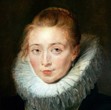Olga Godim's Blog, page 36
August 6, 2014
Editor – friend or foe
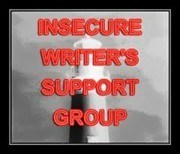 A post for the Insecure Writer’s Support Group
A post for the Insecure Writer’s Support Group
The relationship between editors and writers is always a point of concern. Before I signed up with my publisher, Champagne, I was afraid of editors. They seemed almost mythical creatures with all the powers, hidden somewhere in their all-knowing towers, like grammar magicians, while I, the lowly writer, toiled below.
I have revised my view of editors since and stopped being afraid. An editor still has some power, but mostly, I now view an editor as my helper. The editor’s task is to make my manuscript better. Below are several common wisdoms about editors and my musings on them.
Editor is a necessity
Absolutely. An editor provides a fresh set of eyes to look at your manuscript, a much-needed feedback. In most cases, an editor knows her craft and is able to see problems with your grammar and kinks in your story. I was lucky with my Champagne editor, Nikki Andrews. I accepted over 90% of her suggestions, and it made my novels better.
Editor is God
Not true. Editors are human, like the rest of us. They are fallible and they have their personal preferences, which not always coincide with the writer’s. Once, I had a contract with a publisher, and the editor assigned by that publisher hated my story and my protagonist. She couldn’t even read the manuscript to its conclusion. She sent it back to me, demanding that I change the story and the protagonist. I refused, and my contract was terminated.
Of course I was very upset at the time, but now, looking back, I don’t regret the choice I made then. We were not a good fit, that editor and I, which is mandatory for a successful editing job. Moreover, her passionate rejection of my protagonist was actually a good sign. She hated my heroine as if she was alive. My story inspired strong emotions – a cause for celebration for any writer.
Editor’s word is law
Not really, but in most cases, it’s a good idea to accept your editor’s suggestions, especially with the small stuff: word choice, sentence structure, too many adjectives, etc. That’s why she is your editor after all. But a good editor always allows you a leeway, always remembers that it is your story. If you disagree – ask questions. Try to explain your stand. Discuss. Find a compromise. The more you work on your story, together with your editor, the better it is.
Conclusion
An editor is not your enemy or your friend, nor a god. She is there to help you. Use her help to improve your story.


July 31, 2014
The tower of writers
Found it on BookLikes – such a lovely image. Where would you want to be in this abode of scribes? Avoiding Cliche Island (bottom right) is mandatory for your writerly well-being. I’m entering the plot labyrinth.


July 30, 2014
What I learned from my fiction
 My fellow Champagne writer Elizabeth Fountain invited me to be a guest on her blog Point No Point. The theme of my post there: what I learned from my fiction.
My fellow Champagne writer Elizabeth Fountain invited me to be a guest on her blog Point No Point. The theme of my post there: what I learned from my fiction.
Thank you, Liz.


July 23, 2014
Fantasy Character Interview #20
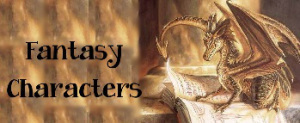 Today, I interviewed Turold, the Magnificent from Joshua Grasso’s comic epic fantasy novel The Astrologer’s Portrait.
Today, I interviewed Turold, the Magnificent from Joshua Grasso’s comic epic fantasy novel The Astrologer’s Portrait.
1. Tell us a little about yourself—name, profession, home, family, the usual.
To begin, let me apologize for crossing the disputed borders, which I certainly had no intention of doing. On my map, at least, I was well within acceptable limits, though I realize that this map is…ah, a few decades old, and we’ve changed hands once or twice since then. I was merely on my way to Cinquefoil to visit an old friend when the patrol found me. I can assure you, I had no intention of practicing magic or exerting my foul enchantments on anyone connected to the Royal Family. I can offer numerous references on my behalf–Prince Harold, future king of the Realm, he knows me intimately! I beg you…
Very well, I understand, I should answer the questions. My name is Turold the Magnificent (a title bestowed upon me, rather than the reverse, I assure you), a Magician of the Fifth Circle, apprenticed under no less a Conjurer than Hildigrim Blackbeard. You’ve never heard of him? I’m not surprised…they’ve blackened his name and erased him from the history books. As you can see, I’m not the most imposing fellow, which necessitated my study of magic: at 4’2, I wasn’t exactly going to be Hercules reborn. My homeland has been conquered and re-conquered so many times it no longer has a name I’m familiar with nor a location I can comfortably point to. Suffice to say, my mother tongue isn’t familiar to anyone in this room, and after all these years, I’m not confident I could speak it myself. I have no family to speak of, though I’m always on the look-out for a capable apprentice, since magic, unless passed on, is little more than a fairy tale. A sad state of affairs, but that’s the reason our order is so diminished in number, especially after the Unspeakable Laws. Not that I’m criticizing Her Majesty’s decrees, mind you.
2. How did you end up in this crazy adventure the novel talks about?
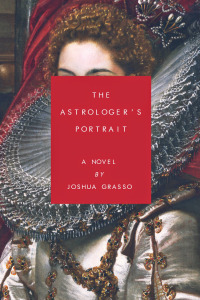 Ha, so you’ve heard about that? Another innocent misunderstanding, naturally. I was hired to create a tapestry for one of the Queen’s relatives using the most durable materials on earth–starlight and spellcraft–so it would last a thousand years. Well, maybe only three hundred, but who would be around to notice? So I created a lurid melodrama about the family’s history, with battles, horses, canons, the works. The only problem was that I succumbed to a certain weakness I have for signing my name, if you will: I included a small portrait of myself in a forgettable portion of the panel. Honestly, no one would see it. Except for a certain inquisitive four-year old, that is. He spotted me at once and pointed me out to all and sundry. They arrested me on the spot and if not for the interest of Prince Harold, I would have been languishing there still–or worse, been sent to the frigid Northern Colonies. Incidentally, the portrait is still hanging in their home; try as they might, they couldn’t destroy it. Take about ten paces to the right and look very low and you’ll see me: a small man riding a horse with a banner over his head reading “Turold.” Heh, it still makes me laugh.
Ha, so you’ve heard about that? Another innocent misunderstanding, naturally. I was hired to create a tapestry for one of the Queen’s relatives using the most durable materials on earth–starlight and spellcraft–so it would last a thousand years. Well, maybe only three hundred, but who would be around to notice? So I created a lurid melodrama about the family’s history, with battles, horses, canons, the works. The only problem was that I succumbed to a certain weakness I have for signing my name, if you will: I included a small portrait of myself in a forgettable portion of the panel. Honestly, no one would see it. Except for a certain inquisitive four-year old, that is. He spotted me at once and pointed me out to all and sundry. They arrested me on the spot and if not for the interest of Prince Harold, I would have been languishing there still–or worse, been sent to the frigid Northern Colonies. Incidentally, the portrait is still hanging in their home; try as they might, they couldn’t destroy it. Take about ten paces to the right and look very low and you’ll see me: a small man riding a horse with a banner over his head reading “Turold.” Heh, it still makes me laugh.
3. Do you think the official account of your adventures is accurate, flattering, and/or useful to the general public?
Oh, you mean that novel? Naturally I don’t read such things…my time is quite taken up with spell craft and traveling, as you can see. However, from what I’ve heard, the account is quite accurate, though I wish it had somewhat lessened my role in the story. Especially that business in Chapter 5. Quite upsetting, and not exactly what one would expect of a responsible Conjurer-Magician. However, if one wants to read about the nature of love, the cost of regret, and the follies of human nature, there are certainly worse ways to spend one’s evenings. I should, however, commend the scribe on his depiction of Dimitri, that two-faced rogue. You know he speaks Yazik, right? He spoke it the whole time, the blackguard, and never said a word to me. Just chattered away in his pidgin Yazik. Only speaks Russian indeed!
So I can go now? Splendid. Again, my deepest apologies, I’m off straight to Cinquefoil. Gentlemen, good evening! Oh, what’s that? Cinquefoil is that way? Hmm…wretched map, must have everything turned around. Thanks for clearing that up. Truly. Again, good night.
~~~~~~~~~~~~~~~~~~~
You can find out more about Joshua Grasso on his website or Facebook.
Buy the book:
Amazon


July 15, 2014
My new story on Wattpad – Amber Spirit
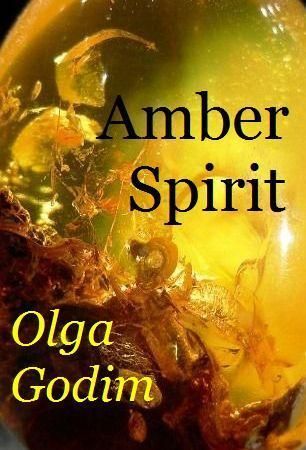 Posted my new short story Amber Spirit on wattpad.
Posted my new short story Amber Spirit on wattpad.
Spirits only stay on Earth when they have an unfinished business. This spirit tries to finish her business. She needs to find a writing body.


July 8, 2014
Wattpad and Pinterest
I’m exploring new social sites.
1. http://wattpad.com is a site where writers post what they want, and readers read what they want. Everything is free. Some writers post serial novels there or updated versions of the same story, based on the readers’ comments. Like any other site, it takes time to establish your name and following there.
Several days ago, I posted my first story on the site, a flash fantasy Basilisk Contract. It’s already had over 30 reads and a couple votes. Not bad for a newbie.
Its blurb: “How to make a basilisk steak out of … something else.” You can read it here.
Today I posted a new flash story there – Don’t Believe in Trolls.
Its blurb: “Bell knows how to disable a malevolent troll. Do you?” Read it here.
2. http://pinterest.com is an image site everyone knows about. I love it. I already have several boards, some connected to my writing, others not. The site is sneaky, it gobbles my time. I log in and before I know it, a few hours have gone. I must limit myself there or I’ll have no time for writing left. What I like most on Pinterest are the fantasy art boards. They are marvelous, with hundreds of pins, some of them by immensely talented artists. I re-pinned a few to my own board.
I love fantasy art, not surprisingly, because I love fantasy as a genre. I read it, I write it, so of course, I like the imagery too. But … I’ve been looking for an image that would reflect my heroine from Almost Adept, Eriale, and so far, I’ve been unsuccessful. Among hundreds of sexy half-naked girls and elves with different accessories – from swords to fish tails – I couldn’t find one image of a fully clothed, sophisticated sorceress of seventeen with long black braids. She is petite and slender, no boobs to speak of, no sexual allure at all, except the magical power she wields.
As I searched for Eriale’s portrait, not one image on Pinterest or deviantART resonated with me. Very few came even close. I wasn’t expecting an exact match, but even an approximation was elusive. Why are female magicians often depicted as either super sexy or super mysterious is beyond me. Eriale is neither. She is very down to earth girl, bookish and slightly nerdy, even though she lives in medieval times (kind-a).
I’m thinking of announcing a contest for her portrait on my site, with my novel as a prize, but I’m not sure there will be any participants. Maybe if I advertise in the right places. For now, I’ll keep looking on Pinterest. I might find something after all.


July 2, 2014
How to end a short story
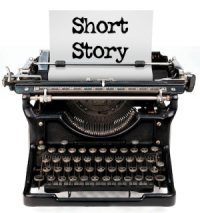 I’ve been inundated by short stories lately. For a couple of years, I haven’t written a short story. I’ve been busy with my novels. Suddenly, short stories exploded in my brain. I wrote one story about a mother in a fantasy setting and sent it to Baen Fantasy Adventure Competition. It probably won’t win anything, but I had to try. If I get a rejection, and even if I don’t (ha!) I’m thinking about publishing a fantasy anthology about mothers. I wonder if many writers find the topic as fascinating as I do. Would I get many submissions to such a call?
I’ve been inundated by short stories lately. For a couple of years, I haven’t written a short story. I’ve been busy with my novels. Suddenly, short stories exploded in my brain. I wrote one story about a mother in a fantasy setting and sent it to Baen Fantasy Adventure Competition. It probably won’t win anything, but I had to try. If I get a rejection, and even if I don’t (ha!) I’m thinking about publishing a fantasy anthology about mothers. I wonder if many writers find the topic as fascinating as I do. Would I get many submissions to such a call?
I also have three more ideas for short stories. One – a flash – is almost ready to be written. It’s humorous in a fantasy milieu but without most fantasy trappings. Magic is only hinted at. It’s about food.
The second idea also takes place in a fantasy setting, vaguely Britain circa 18th century, and deals with two twin sisters separated at birth and then reunited by accident. This one is not ready to write. I know how it starts and I know the middle too, and the names of the characters, but I don’t know what the heroine wants in the end. She could pursue several mutually exclusive objectives in several different ways. I’m leaning toward humorous and romantic but I haven’t determined yet. It might be a retelling of Othello. Decisions, decisions…
And then there is the third story. I also know its beginning but not where it’s going. It’s my bane: not knowing the ending. Most of my short stories start this way, and it always takes time for me and my heroes to arrive at a conclusion.
This story’s subject has been done to death already – a soul transplant between bodies. Obviously speculative fiction. A few years ago, I wrote a scifi story on this theme, but this one is going to be modern fantasy. I don’t think the twist I’m thinking about has been done before, but how the heck does this story end? Maybe I should join Wattpad and ask the readers for help?
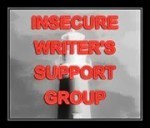 Do you write short stories? Flash? How do they develop in your mind? Do you know the endings at once? Or do the beginnings give you trouble?
Do you write short stories? Flash? How do they develop in your mind? Do you know the endings at once? Or do the beginnings give you trouble?
This is a post for the Insecure Writer’s Support Group


June 19, 2014
Virginity is an anatomical term
In my novel Almost Adept, my heroine Eriale’s original goal in the beginning of the story is to lose her virginity. Some reviewers disliked it. They thought she should be less blasé about it, more ‘virtuous.’ Instead, she pursues her goal without false modesty, even while engaged in the more heroic activities that comprise the bulk of the novel. Her quest to lose virginity quickly becomes secondary to saving people’s lives, but Eriale never abandons it until she succeeds.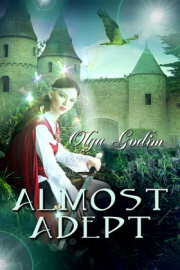 I’d like to explain her position here: why is losing virginity so important to her. Eriale is an Adept – a magician of enormous power. To be able to harness such power at all times is mandatory for an Adept, no matter her emotional or physical state: pain or grief, fury or elation, illness or sex.
I’d like to explain her position here: why is losing virginity so important to her. Eriale is an Adept – a magician of enormous power. To be able to harness such power at all times is mandatory for an Adept, no matter her emotional or physical state: pain or grief, fury or elation, illness or sex.
Anyone who’s ever experienced a sexual intercourse knows that in the best case scenario – the best climax – for a few moments before, during, and after, humans become mindless embodiments of instincts, relinquishing almost all conscious control.
An Adept can’t allow this to happen, can’t allow control of her power to slip even for one second, or she could cause colossal damage. She must learn to compartmentalize her mind, so even during the most vigorous sex she would keep a tight leash on her magic.
Of course, like in any other activity, in sex, practice makes perfect. Eriale must experience sex multiple times to insure she has the necessary control, before the magic guild even allows her to apply for the Adept license. Being a virgin would equate an automatic denial to her application. Furthermore, the guild will check her status as a non-virgin before issuing the license. In their world, it’s a public safety issue, without any morality snags.
Sadly, for some readers in our world, the entire situation becomes a personal affront. In our society, virginity has been associated with morality for centuries. Keeping a girl’s virginity intact before marriage was always a social inhibition. Although the standards have laxed somewhat in the past fifty years, Eriale’s push to lose virginity still annoys some people.
I didn’t set out to upset their sensibilities when I wrote this novel, but I sincerely think that virginity and morality shouldn’t be linked. My protagonist is not moral or amoral, just practical. For her (and for me), virginity – an unbroken hymen – is a biological condition, akin to baby teeth. She can’t access her full magical (or female) potential until she gets rid of it. It has nothing to do with her morality.
Lois McMaster Bujold in her sci-fi Vorkosigan series has the right approach to the question of virginity. On Beta Colony, a rational, technologically advanced planet, all women lose virginity in the same way. When a girl reaches puberty, around 13 or 14, her parents take her to a doctor. He cuts her hymen (painlessly, with a sterile instrument), pierces her ears, and installs a contraceptive implant. After that, the girl is considered an adult and can experiment with her sexuality until she is ready to start a family. It’s not a moral issue but a common-sense way to deal with teenage hormones.
I tried to implant a similar value system, at least for magicians, in the fantasy world I created for Eriale and her friends.


June 15, 2014
Fantasy Character Interview #19
 Today, I interviewed Jane, the protagonist of Elizabeth Fountain’s urban fantasy novel You, Jane.
Today, I interviewed Jane, the protagonist of Elizabeth Fountain’s urban fantasy novel You, Jane.
1. Tell me a little about yourself—name, profession, home, family, the usual.
My name is Jane Margaret Blake (my dad watched a lot of M*A*S*H, what can I say? I think he longed for Margaret and Henry to wind up together somehow). I grew up near Seattle, but I’ve bummed around a lot in my life: taught English in Japan, slept on some friends’ couch in Boston, did my time at a hippy ashram in Taos. I guess you could say that’s my profession: never staying in one place long enough for anything to be permanent.
Now that I’m closer to forty than thirty, something seemed to pull me back to Seattle. It could be my best friend, Charlie, who lives here with his annoying wife and his wonderful little boy. Or it could be the little stories I write when I’m in a trance, fables I call them. They have a way of coming true and creating havoc in my life. I don’t control them, I promise. If I could, my life wouldn’t look like this, would it? I’d be settled with the man I love, happily ever after. Right?
Good thing my neighborhood is chock-full of taverns, including my favorite, Molly’s bar, just a short walk down the street from my apartment.
2. What happened to you, so you ended up in this crazy adventure the novel talks about?
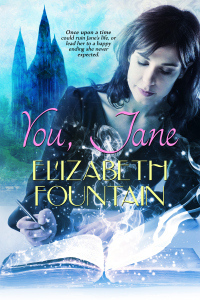 Yeah – how did I get here? As far as I can tell, the central mistake of my life happened when Charlie and I were about to graduate from college. I was in love with him – crazy in love with him, still am, really – but I didn’t know how to tell him. So instead I shared my deepest secret: my ability to write these damn fables that come true. One had come to me just then, and it seemed to say that Charlie was going to run off to Vegas and marry some other girl, someone he wasn’t really in love with. I guess the same Wicked Spirit who puts the stories in my head made me share that little fable with Charlie, and it made him so mad he threw me out of his apartment. Worse, he did marry that girl. And I started wandering.
Yeah – how did I get here? As far as I can tell, the central mistake of my life happened when Charlie and I were about to graduate from college. I was in love with him – crazy in love with him, still am, really – but I didn’t know how to tell him. So instead I shared my deepest secret: my ability to write these damn fables that come true. One had come to me just then, and it seemed to say that Charlie was going to run off to Vegas and marry some other girl, someone he wasn’t really in love with. I guess the same Wicked Spirit who puts the stories in my head made me share that little fable with Charlie, and it made him so mad he threw me out of his apartment. Worse, he did marry that girl. And I started wandering.
So now it’s a million years later, or whatever, and he’s a father and he doesn’t need me. Why did I come back to Seattle? Did the Wicked Spirit bring me here, with that one little story I just discovered, about a man leaving hell to seek paradise? This guy’s been in my tales for a while, and now I seem close to being able to write a happy ending. Maybe.
3. Jane, do you believe in happy-ever-after?
Me? Well, I… I mean, you know, I think… happy-ever-after? Um… Can someone pour me a drink?
~~~~~~~~~~~~~~~~~~~
You can find out more about Elizabeth Fountain on her website or Facebook.


June 12, 2014
Black or white is in the eyes of the readers
This is a re-blog of my post at The Writers’ Vineyard
Recently, book bloggers have been complaining that most high fantasy stories take place in the worlds resembling medieval Europe, or at least our imaginary version of it, and that most fantasy characters are white. “Give us more cultural diversity!” the bloggers and readers demand. “We want Africa, China, India, whatever… We want characters that are not white. We want different.”
While the facts the readers bemoan are correct, I don’t think there is anything to complain about. Furthermore, I don’t think we, writers, should do anything about it. The readers accuse us of discrimination, but in my view, the opposite is true. It’s the readers who see white guys everywhere, when in fact, by using a little imagination of their own, they can see anyone they want.
A writer writes what is close to her heart, her own vision of the story and the characters. She shouldn’t paint her characters’ skin in a color she isn’t drawn to. But when a reader opens a book, it’s like staging a show inside his or her head, with one spectator, the reader, and one casting director, the same reader. He can cast anyone he chooses for any role. It’s his choice.
Take Tolkien. If Aragorn had dark skin or narrow Asian eyes, would his behavior or his actions change? No. Tolkien wrote Aragorn as a great hero. The color of his skin was irrelevant to the story. I don’t remember exactly how much space Aragorn’s description takes in the three volumes of The Lord of the Rings, but I’m sure it’s not more than a couple lines – in about fifteen hundred pages. Can’t the readers imagine him any color they wish? If they can’t or don’t want to, if they want to see him white, it’s not the writer’s fault.
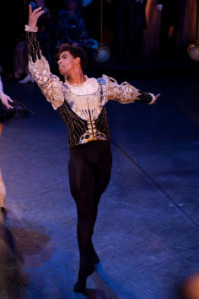
Carlos Acosta in Swan Lake. Photo by Angela Taylor
Classical ballet has the right approach to the issue. When Giselle or Sleeping Beauty were first choreographed, the choreographers and the librettists envisioned the heroes white, although nobody specified the performers’ skin color. At the time, there were no other ballet dancers but white.
Now the situation changed, and the ballets changed with it. Chinese ballerinas dance Giselle (a French peasant) or Kitri (a Spanish girl), and nobody is surprised. One of the ballet superstars, Carlos Acosta, is a Cuban-born, brown-skinned dancer. His repertoire includes all the assorted ballet princes who were originally assumed white. The public loves him. The roles are cast according to skill levels. Skin color has nothing to do with it.
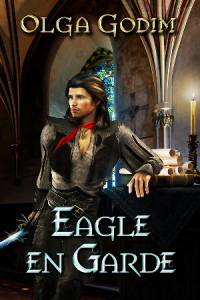 In my novel Eagle en Garde, my protagonist Darin is a white guy, because that’s how I see him. But I don’t force my vision on the readers. Like Tolkien, I used only a line or two of a verbal sketch. If any reader wants him black, please be my guest, disregard my short description. Imagine Darin a mulatto or an Inca or a Japanese, whatever you wish. His courage and wit won’t be affected, and the story won’t change. It’s up to you, the reader, how you see my hero.
In my novel Eagle en Garde, my protagonist Darin is a white guy, because that’s how I see him. But I don’t force my vision on the readers. Like Tolkien, I used only a line or two of a verbal sketch. If any reader wants him black, please be my guest, disregard my short description. Imagine Darin a mulatto or an Inca or a Japanese, whatever you wish. His courage and wit won’t be affected, and the story won’t change. It’s up to you, the reader, how you see my hero.




